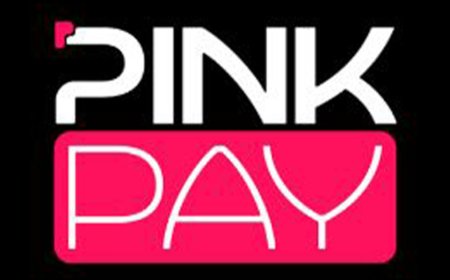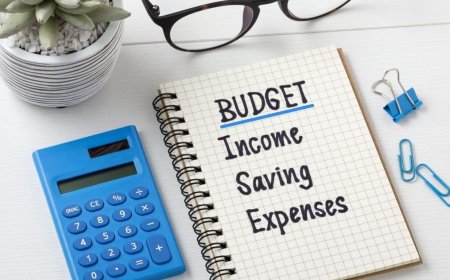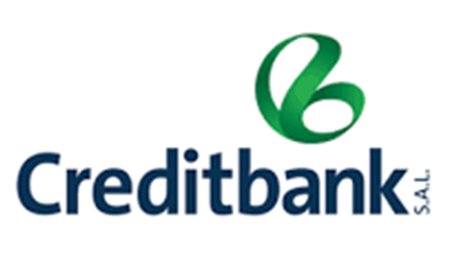14 Proven Tips to Save Money on a Small Salary in Africa (2025 Guide)
Discover practical, African-centered strategies to save money on a small salary. From budgeting hacks and side hustles to SACCOs and bulk shopping, learn how to build savings even with a low income in cities like Nairobi, Lagos, and Accra

Saving money on a low income in Africa can feel like an uphill battle, with rising costs, family obligations, and unexpected emergencies. Whether you’re earning minimum wage, freelancing, or collecting from multiple gigs, building a savings habit might seem out of reach. However, with intentional planning and practical strategies, you can save money and work toward financial stability, no matter how small your income.
This 2025 guide offers 15 African-centered tips to help you save money on a low salary. From budgeting hacks to leveraging local savings groups, these proven methods are tailored to the realities of life in cities like Kampala, Lagos, Nairobi, Accra, and beyond. Let’s dive into how you can start saving today.
Why Saving Money Matters
Saving isn’t just about stashing cash, it’s about creating a safety net and seizing opportunities. Here’s why it’s critical:
- Emergencies: Medical bills, job loss, or family crises can strike unexpectedly.
- Opportunities: A business idea, discounted property, or investment may require quick cash.
- Peace of Mind: Savings reduce financial stress and build confidence.
- Future Goals: From school fees to starting a business, savings give you control.
1. Monitor Your Income and Expenses
You can’t save what you don’t track. Understanding where your money goes is the first step to financial control.
How to start:
- List Income: Record all earnings, including salary, side hustles, or gifts.
- Track Expenses: Note fixed costs (rent, transport, food) and variable spending (snacks, airtime).
- Use Tools: Write in a notebook, use Excel, or download free apps like Monefy, Spendee, or PiggyVest (popular in Nigeria).
2. Adapt the 50/30/20 Rule for Low Income
The classic 50/30/20 budgeting rule (50% needs, 30% wants, 20% savings/debt) doesn’t always fit African realities. Here’s a modified version for incomes under $300/month:
- 70% Needs: Rent, food, transport, utilities.
- 20% Savings/Debt: SACCO contributions, emergency fund, or loan repayments.
- 10% Wants: Data bundles, entertainment, or occasional treats.
Even saving 5% consistently can grow into meaningful savings over time. You could also learn some tips from How I Lived on $300 a Month: Budgeting Tips for Financial Freedom in 2025
3. Cook at Home, Skip Eating Out
In urban centers like Kampala, Johannesburg, or Lagos, eating out or grabbing snacks drains your wallet. A single takeaway meal may seem affordable, but daily costs add up.
Money-Saving Tips:
- Cook in bulk and store meals in the fridge.
- Pack lunch for work instead of buying food.
- Cut back on impulse buys like sodas or street snacks.
Tip: Shop at local markets instead of supermarkets for cheaper, fresher ingredients.
4. Opt for Affordable Transport
Transport costs in cities like Accra or Kigali can eat up a significant chunk of your income. Ditch expensive options like daily boda-boda or taxi rides hence saving money on commuting
Smart Alternatives:
- Use matatus, buses, or shared vans for daily commutes.
- Walk short distances to save money and stay healthy.
- Carpool with coworkers to split fuel costs.
5. Launch a Side Hustle
If your salary barely covers essentials, a side hustle can boost your income and savings. Use the extra cash strategically.
Popular African Side Hustles:
- Selling second-hand clothes (mitumba in Kenya, okrika in Nigeria).
- Making snacks, juice, or baked goods for sale.
- Freelancing online (writing, graphic design, virtual assistance).
- Tutoring or teaching skills like coding or languages.
- Offering services like hairdressing or barbering.
Tip: Save at least 50% of side hustle earnings to build your financial cushion. You can check out these 10 Smart Ways to Make Money Online in Your 20s: Build Wealth from Home in 2025
6. Join a SACCO or Savings Group
Across Africa, Village Savings and Loan Associations (VSLAs), SACCOs, or rotating savings groups (like chamas in Kenya or stokvels in South Africa) are powerful tools for saving.
Why They Work:
- Peer accountability ensures consistent contributions.
- Low-interest loans are available for emergencies or investments.
- Annual dividends add to your savings.
Testimonial: “I saved KES 100,000 in 18 months by contributing KES 1,000 weekly to my chama,” says Mercy from Nairobi.
7. Buy in Bulk for Savings
Purchasing small quantities of essentials like rice, sugar, or soap is costlier in the long run. Bulk buying can stretch your budget and you can save money in groceries.
Bulk Shopping Tips:
- Visit wholesale markets or stores for better deals.
- Team up with friends or family to split bulk purchases.
- Avoid buying on credit, as it often comes with high interest.
8. Enjoy Free or Low-Cost Entertainment
Entertainment doesn’t have to break the bank. Cut costs without sacrificing fun.
Affordable Ideas:
- Visit public parks or beaches (e.g., Uhuru Park in Nairobi).
- Attend free community or church events.
- Stream free content on YouTube or podcasts instead of subscribing to pay TV.
- Host game nights at home instead of going out.
9. Eliminate Unnecessary Subscriptions
Subscriptions and small recurring expenses can silently drain your income. Review and cut where possible.
What to Reduce:
- Pay TV (DStv, GOtv) if rarely used opt for free-to-air channels.
- Data bundles use Wi-Fi at work or cheaper night bundles.
- Gym memberships try free home workouts or jogging.
Question to Ask: “Do I need this, or can I live without it for now?”
10. Set Specific Savings Goals
Saving without a purpose often leads to spending. Define clear goals to stay motivated.
Examples of Goals:
- Build an emergency fund (3-6 months of expenses).
- Save for school fees or a child’s education.
- Fund a small business or investment.
- Buy land or contribute to a house deposit.
Tip: Open a dedicated mobile money or bank account and name it (e.g., “Business Fund” or “Emergency Savings”). This makes withdrawals less tempting.
11. Avoid Non-Productive Debt
Borrowing for consumption like clothes, parties, or gadgets traps you in a cycle of debt. Only take loans for income-generating purposes.
Smart Borrowing Rules:
- Ensure the loan will create more income (e.g., buying equipment for a business).
- Budget for repayments to avoid penalties.
- Choose low-interest options like SACCO loans over loan sharks.
12. Use the 24-Hour Rule for Purchases
Impulse buying is a savings killer. Before spending on non-essentials, wait 24 hours and ask:
- Do I need this item?
- Is it worth the cost?
- Can I find a cheaper alternative?
This simple rule helps you avoid regrettable purchases.
13. Involve Your Family
Saving is easier when your household is on board. Share your financial goals with your spouse or children to align spending habits.
How to Engage Family:
- Discuss budgets and savings goals openly.
- Encourage small contributions from kids (e.g., saving pocket money).
- Celebrate milestones like reaching a savings target.
14. Leverage Mobile Money Savings Tools
Mobile money platforms across Africa offer savings features with small minimums.
Popular Options:
- PiggyVest (Nigeria): Automates savings and offers investment options.
- M-Shwari (Kenya): Combines savings and low-interest loans.
- MTN MoMo Target Savings (Uganda): Allows goal-based savings.
- Chipper Cash: Supports cross-border savings and transfers.
Tip: Set up automatic deductions to save before you spend.
15. Cultivate Contentment
Social media and peer pressure can push you to overspend. Practicing contentment helps you focus on what matters.
Mindset Shifts:
- Appreciate what you have instead of chasing trends.
- Delay gratification for bigger goals.
- Celebrate small savings wins to stay motivated.
Saving on a Low Income Is Achievable
Whether you earn $50 or $500 a month, saving money is possible with discipline and strategy. Start small, track your spending, and leverage local tools like SACCOs or mobile money apps. By making intentional choices, you can build a financial safety net, seize opportunities, and work toward a secure future.
Frequently Asked Questions (FAQs)
1. Can I save money if I earn less than $100/month?
Yes. Save small amounts daily or weekly, like ₦500, KES 100, or UGX 2,000. Consistency is key.
2. Should I save before or after paying bills?
Save first (pay yourself first), even if it’s just 5–10% of your income, then budget the rest.
3. What are the best savings apps in Africa?
Try PiggyVest (Nigeria), M-Shwari (Kenya), MTN MoMo Target Savings (Uganda), or Chipper Cash for easy, low-cost savings.
4. How do I stay motivated to save?
Set clear goals, name your savings account, and track progress. Celebrate small milestones to stay focused.
5. Are SACCOs safe for saving?
Most SACCOs are reliable, but research their reputation and ensure they’re registered with local authorities.
What's Your Reaction?




































